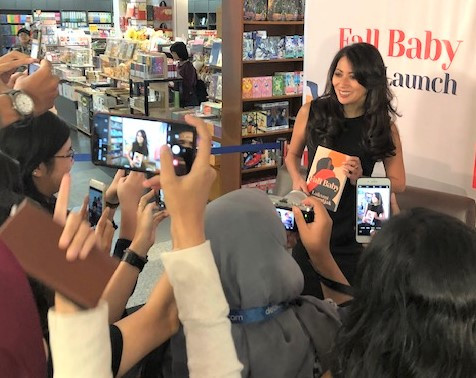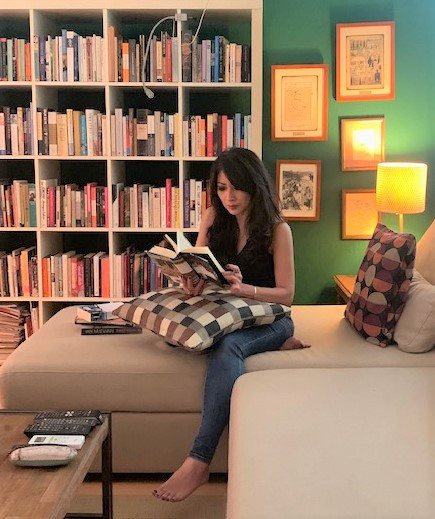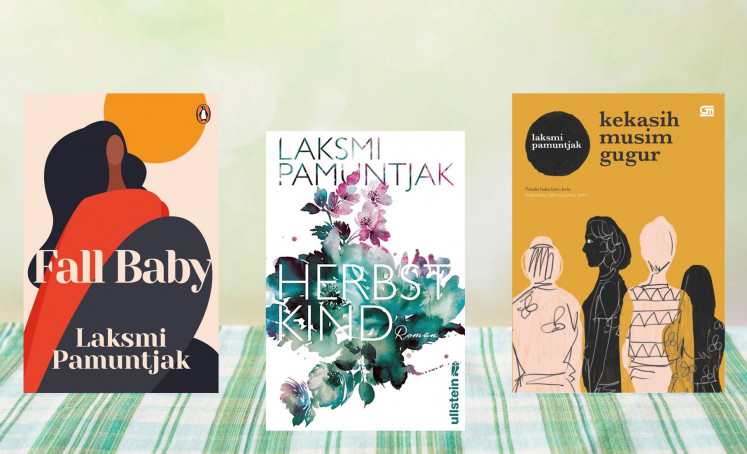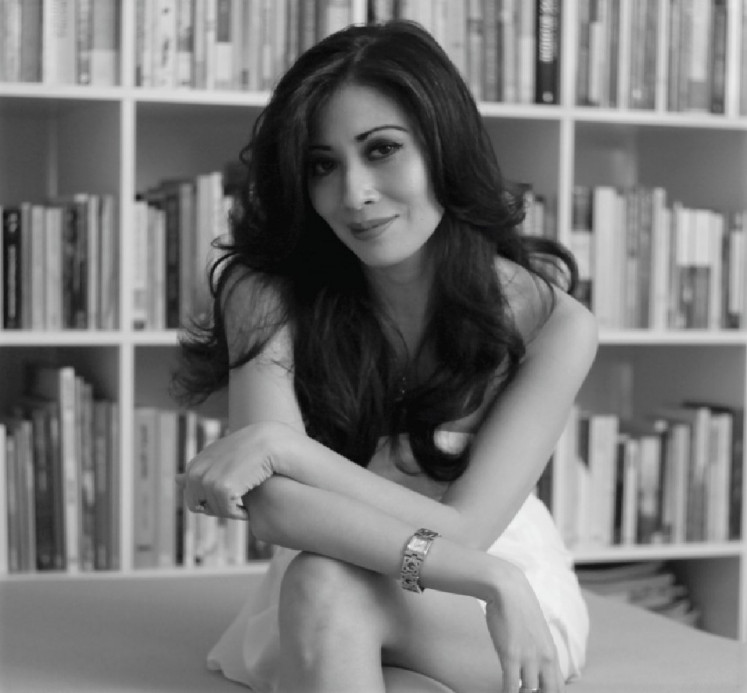Popular Reads
Top Results
Can't find what you're looking for?
View all search resultsPopular Reads
Top Results
Can't find what you're looking for?
View all search resultsLaksmi Pamuntjak reflects on ‘Fall Baby’, her time in self-quarantine
At a time when good news is hard to come by, a breath of fresh air comes from Indonesian author Laksmi Pamuntjak. Her novel Fall Baby won Best Literary Work at the 2020 Singapore Book Awards.
Change text size
Gift Premium Articles
to Anyone
L
ike many other people during self-quarantine, award-winning Indonesian novelist, poet and essayist Laksmi Pamuntjak went through different stages.
In the first two months, she found it difficult to write anything other than emails and messages to friends asking how they were.
“You’d think it is the most natural thing, to counter the loneliness and isolation with exterioration, to manifest all our fears and uncertainty in paper and ink. You’d think they would come pouring out of you,” she said in an email interview.
But in reality, she did not write anything down, much less write about her feelings, thinking that everybody’s story seemed more pertinent than her own.
“My daily walks became more purposeful, my interaction with friends and family more heartfelt, my appreciation for nature more acute.”
Only in the third month, she began to read, and then write again.
She’s not sure if the pandemic has changed her writing, but the feeling of gratitude that infuses everything she does has probably affected the way she thinks about writing, finding the ability to write at all, let alone not run out of ideas, an immense privilege.
The serenity she started feeling around this period also allowed her to access the past differently – her memory opened up, finding herself remembering tiny yet affecting details of her daughter’s and her own childhoods, her lives in different cities or about her parents when they were younger and happier.
“I have not written all of these thoughts down, but I’m sure that the generosity that came with remembering them will inform the way I write about them one day.”
Her only regret is not keeping a diary of the past few months.
“As we know, a diary can serve as a stimulant to feeling and remind us that we are alive. What I learned instead was to learn to love the mundane, including my daily routine. It helps me manage my uncertainty, makes me feel safer, more anchored.”
‘FALL BABY’
Laksmi’s novel Fall Baby – a sequel to The Question of Red (TQoR), a love story set against the backdrop of the Indonesian anti-Communist massacres of 1965 – won Best Literary Work at the 2020 Singapore Book Awards on Aug. 13.
Translated: Author Laksmi Pamuntjak’s award-winning novel 'Fall Baby' has also been translated into German and Indonesian. (Courtesy of Laksmi Pamuntjak/-)The novel, which explores the story of Siri – the love baby of Amba and Bhisma, The Question of Red’s protagonists who were violently separated toward the end of the novel – was translated and recently published in Indonesian with the title Kekasih Musim Gugur by Gramedia Pustaka Utama.
“If TQoR is the story of the mother and the father, Fall Baby is the story of the daughter. Actually, the original idea was always to have them in one story. I couldn’t imagine one without the other.”
In the earlier drafts, she said TQoR had always had the triple narratives – of Amba, her daughter Siri and Samuel, the Ambonese man who met Amba on her trip to Buru Island – flowing side by side, with alternating PoVs.
She said the mother-daughter story had always been crucial because it related to the leitmotif in most of her fictions: parenthood, adoption, the notion that children often cannot escape the fate of their parents and that the pain of historical trauma spreads from generation to generation.
But the novel got bogged down by too many storylines so she decided to take out the daughter’s story until an opportunity to write Siri’s story came after the German version of TQoR was published in 2015.
“It is, after all, a story of a different generation, a different world altogether to TQoR. The circumstances are different, the sensibilities are different. They involve different ways of processing history, of approaching family. So, of course its voice, its tone and its pace are necessarily different from TQoR: in Fall Baby, they are faster, more direct and in some ways more irreverent.”
Apart from the difference in narrative style and time period, Siri is by definition a traveler, both in the mental and physical sense, who is constantly struggling with her multiple identities, with what it means to be her true and adopted selves at once; to be “Indonesian” and “of the world”; and in life and in art.
In this sense, Siri is both very different and not so different from her mother, Amba, who is also curious about the world but lived in a world that was more restrictive in its norms, values and mobility.
The two novels also necessarily differ in form – The Question of Red is a historical fiction, Fall Baby is more contemporary.
When she started writing the former 15 years ago, Laksmi said she wanted a big canvas for a big novel, wanting to know what it would be like to write an epic, a big story about Indonesia and all its complexities.
“In contrast, Fall Baby is more intimate. It is the first novel I’ve written in which I dare myself to use the first person. Previously I always feared and mistrusted the ‘I’ unless it’s in poetry […].”
THE ARTS
Siri’s character is also painted to be one of fierce independence and a learned, cultured background, as Fall Baby is enriched with references to the arts and Indonesian history.
“I don’t know why, but I always need a ‘way in’ into my novels, especially when I want to tackle big themes of humanity such as oppression and injustice or difficult subjects like communism, censorship and religious and cultural intolerance and tie them to the personal lives of the characters in the novel,” she said.
In TQoR she found the Hindu epic Mahabharata the perfect framework to talk about the official lies constructed by the Soeharto regime around the massacres of 1965 to justify his dictatorship. In Fall Baby she found a way in through art.
For her, looking at art is like looking at mythology – about acknowledging different ways of seeing and even within one person, there are multiple identities and selves.
At home: Author Laksmi Pamuntjak poses in her reading room. (Courtesy of Laksmi Pamuntjak/Bona Sutirto)Growing up with paintings, books, classical music and wayang stories, Laksmi said she was at her happiest when standing in front of a painting.
In 2006, she published The Diary of R.S.: Musings on Art, a series of short fictions based on the paintings she loves. It made her always want to write a novel about an artist looking at the world through paintings.
And she did it in Fall Baby, such as in one scene when Siri is taken by her mother, Amba, to the house of great Indonesian artist Sudjojono. And all the artwork by world renowned masters like Matisse, Rembrandt and Vermeer in the novel are among those that deeply resonate with her.
The focus on art also allows her to tackle one more concern: rising intolerance. “Between 2015 and 2017, when I was still living in Berlin, rightwing extremism was on the rise. Trump happened, Brexit happened. Back home, society had become more polarized in matters of race, ethnicity, religion and belief.”
Those were particularly bad years for art as well, she added, with art exhibitions, transgender cultural gatherings and public statues deemed pornographic being cracked down on, while anti-communism, anti-Chinese and anti-LGBTQ sentiment was on the rise.
“Yet artists continued to wear the courage and intelligence of their resistance, as they have always done in the face of injustice and repression. This is why telling the story of an artist in an increasingly undemocratic time became even more crucial to me.”
When translating Fall Baby, on some levels, she faced the same challenges she had when translating TQoR from Indonesian into English, finding it never easy to translate a story from one language, culture, mindscape and history into another. “It involves ‘writing anew’ especially if you’re the story’s own author,” Laksmi said.
With Fall Baby there is a difference since it was first written in English and this time she had to render it into Indonesian. Moreover, she said Fall Baby had always been a cosmopolitan-ish novel, and whose voice embodied its protagonist’s cultural duality, which made it somewhat easier to translate into Indonesian, while TQoR had always been deeply contextualized, deeply “Indonesian”.
With the pandemic still in full swing, she thinks it will change the literary industry at least for some time, noting that almost every aspect of the industry has changed since the outbreak – with some bookstores still closed and no more book fairs and literary festivals to attend for some time while demand for print books has plummeted and select publication dates are pushed back or moved forward.
Authors, she said, cannot tour with their new books and have to learn new ways of promoting their books in a new environment like social media.
“I don’t know if the pandemic will change the literary industry in the long run, but I hope the short-term adjustments we all have had to make will help lay the groundwork for what the future of publishing might look like.” (ste)
-- Shadine is an intern at The Jakarta Post.














